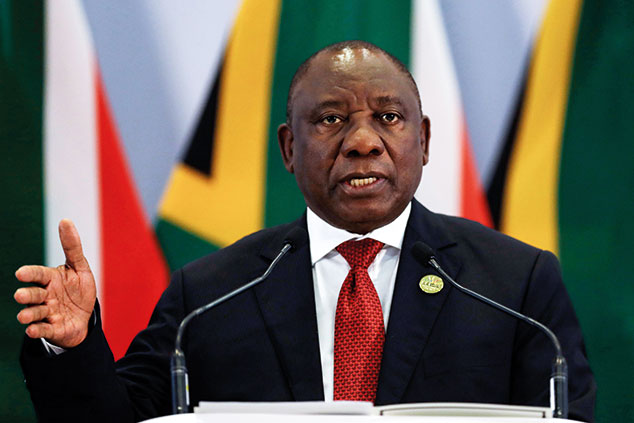
The immediate problem was a series of power outages caused by state-owned utility company Eskom. South African homes and businesses endured scheduled power cuts to prevent a collapse of the overstretched electricity grid. Eskom’s debt ballooned to 10% of national GDP under the corrupt former president Jacob Zuma. Its debt-servicing costs are almost twice its free cash flow. As it battles to meet demand, it has warned that “it could run out of money by April, defaulting on its vast debt”, says the BBC.
The episode is a stark reminder of how much trouble South Africa got into under Zuma – and how much work his successor Cyril Ramaphosa, who faces an election in May, has to do to clean up the mess. The “cautious, some might say crawling, pace” of political change adopted by Ramaphosa is a broader worry. “The market wants action yesterday, but given the political calendar, the government can’t deliver right now,” Kaan Nazli, senior economist at investment management group Neuberger Berman, told Barron’s. And while Ramaphosa is clearly a vast improvement on Zuma, it’s becoming increasingly clear that tackling corruption is a monumental long-term challenge, says Eoin Treacy of Fuller Treacy Money.
It hardly helps that South Africa’s commodities-based growth model faltered when gold and platinum prices crashed five years ago. Lacklustre growth means it can’t make a dent in its unemployment rate of 27%. It also priced itself out of the manufacturing market because of its high wages. A debate on constitutional changes that will enable the government to take land without compensation is the latest development to unnerve investors.
Can stocks bounce?
The South African large-cap stockmarket index, the JSE Top 40 index, is highly cyclical. More than 50% of it consists of commodity, media and financial stocks. So a gradual increase in confidence over the global economy will give it a lift. And John Ashbourne of Capital Economics thinks the South African economy “will bounce back after a very weak 2018”, although jitters over land reform may hamper growth. But equities are not exactly cheap on a price/earnings (p/e) ratio of 15.6, so any upside may already be priced in.